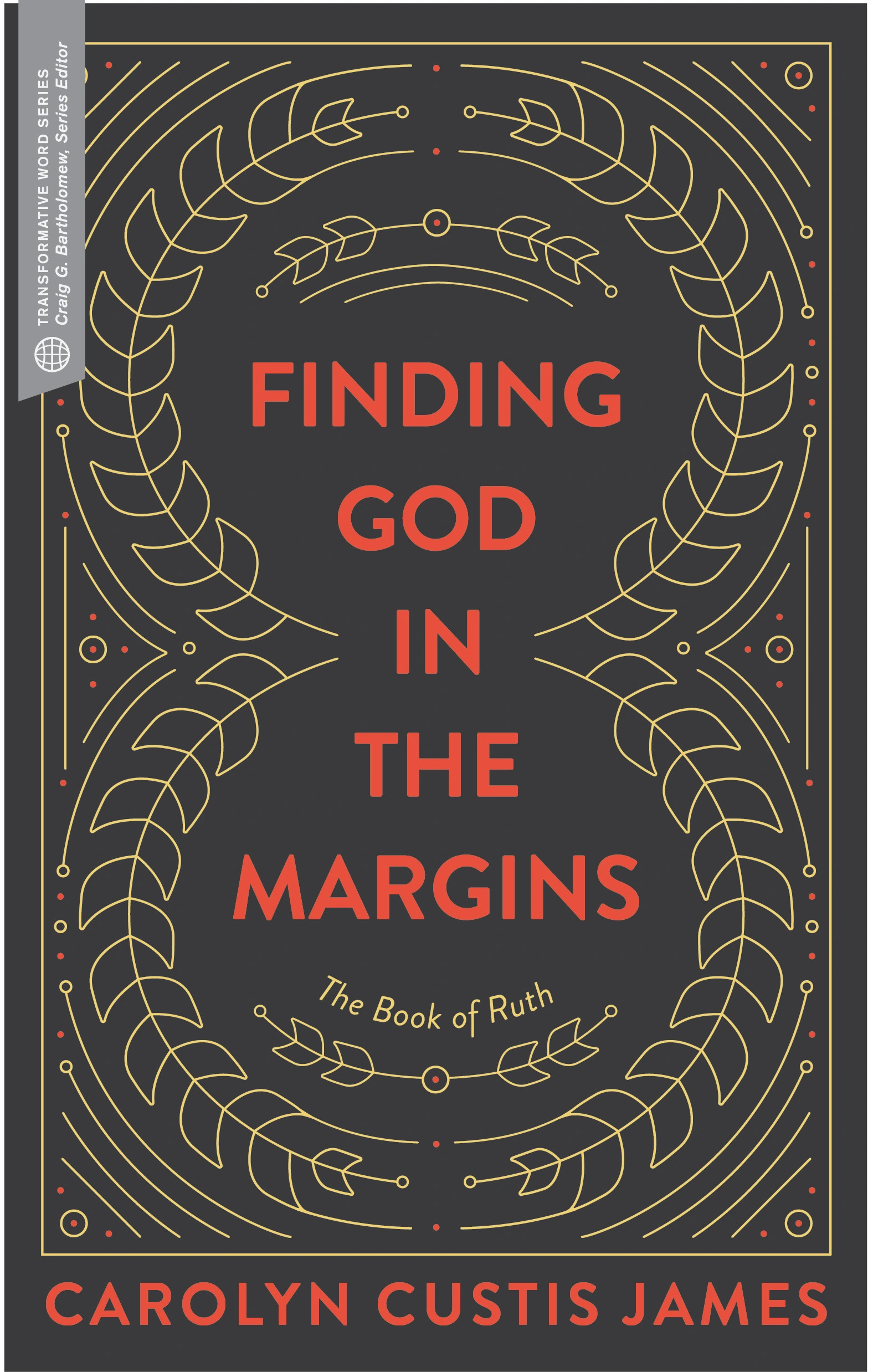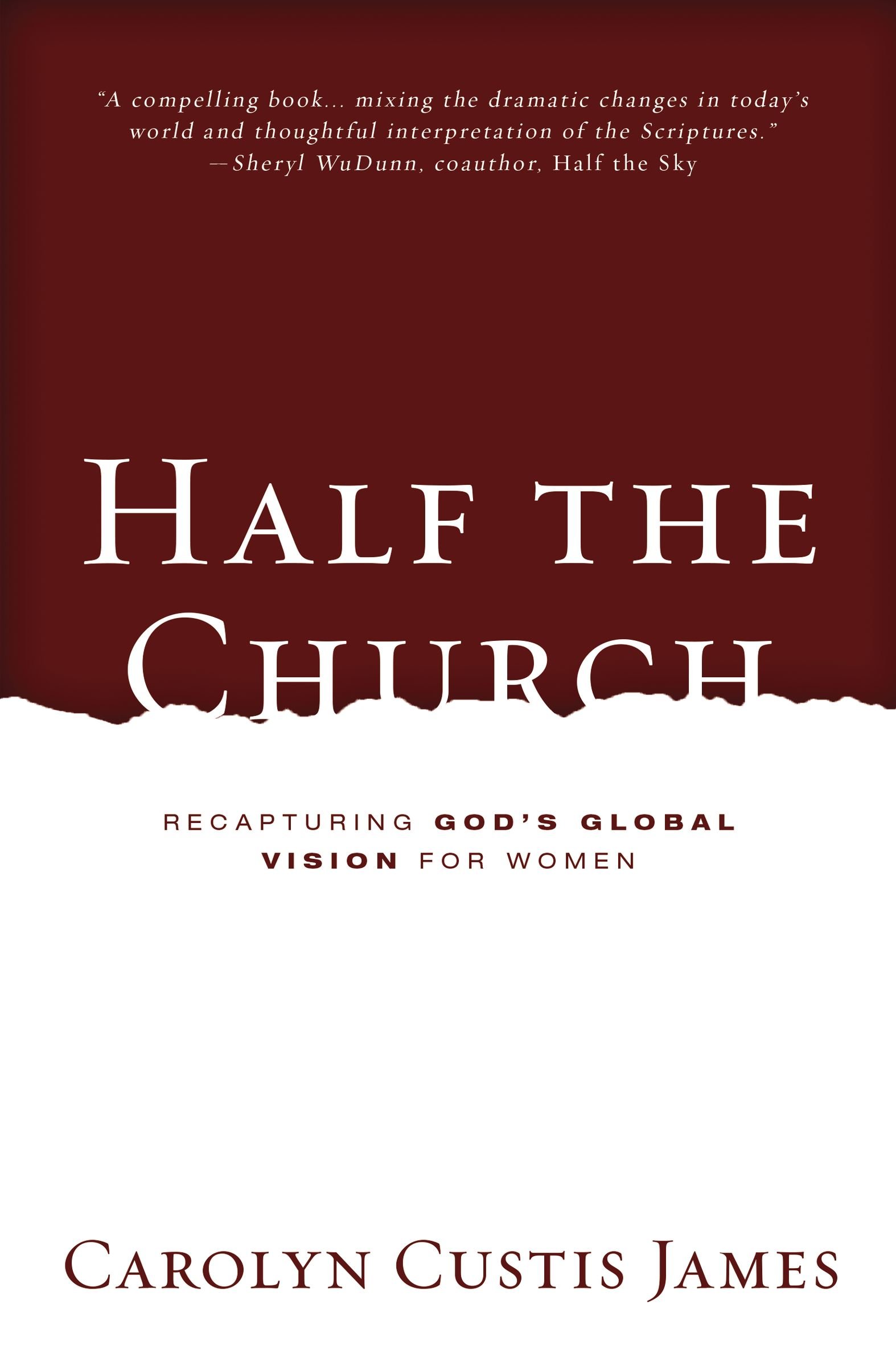
“Professional ambition is expected of men but is optional—or worse, sometimes even a negative—for women.”
We’re about to dive into chapter 1 in a series of online discussions through Sheryl Sandberg’s bestseller, Lean In: Women, Work and the Will to Lead—an especially relevant topic for Christian women in the workplace.
If you don’t yet have a copy, forget the public library. A friend emailed me yesterday to say, “I reserved Lean In at the library, but I’m 159th in line. And they have lots of copies!!”
Did I say “bestseller”?
So here goes … and please feel free to join in!
Sandberg’s Take
The subject of ambition sits squarely on the table in the opening chapter of Lean In, where Sandberg notes a disappointing trend in the low numbers of women compared to men who are reaching the highest leadership levels in the workplace. The culprit, as she sees it, is not the lack of opportunity or women’s ability to lead, but is rather a “leadership ambition gap” between women and men.
“Ambition” is defined as a strong desire to achieve a particular goal—anything from good grades to losing weight to a leadership post. Sandberg doesn’t exactly offer a formal definition of ambition, but she observes that despite the fact that women are “earning about 57 percent of the undergraduate and 60 percent of the master’s degrees in the United States” leadership positions in business remain “overwhelmingly stocked with men.” (p.15).
And why is this? According to Sandberg, it is a lack of ambition in women.
She observes several reasons why women hold back instead of climbing the corporate ladder in significant numbers. There is the perception that ambition is not a virtue for women and is therefore inappropriate. Social pressures make marriage a more important goal for young women. The constant need to juggle personal and professional priorities diminishes the desire for advancement and more responsibility on the job. And girls are typically conditioned differently than boys.
In all of these, she sees fear as the root cause—“fear of not being liked … of making the wrong choice… of drawing negative attention … of overreaching … of being judged … of failure… of being a bad mother/wife/daughter.” (p.24)
At the 2011 Barnard College commencement, Sandberg sounded her mantra by calling female graduates to “lean way in to your career. . . . find something you love doing and you will do it with gusto. Find the right career for you and go all the way to the top.” (p.25)
My Take
In her review, Rebecca Lyons pushed back on Sandberg.
“Ambition has a tendency to bend a good thing—bravery—into a selfish thing. And the world doesn’t need more selfish women. It needs more women who are empowered to use their talents to renew their workplaces, as well as their families, neighborhoods and communities. If we lean in to a corporate culture that insists we climb our way to the top, we will miss a greater call to bravery: to transforming our surroundings, instead of conforming to them.”
I’m all for more bravery. But I’m not willing to set aside ambition so easily. Displacing it with “bravery” or some other more palatable attribute plays right into the mentality that ambition is inappropriate for women—thinking that is unfortunately even more entrenched in Christian circles.
I think we need to tackle this issue head on.
Isn’t the problem that we are caught on the horns of a double standard—one definition of ambition for men and another for women? Men are criticized for “lacking ambition”; women are disparaged for having it.
Ambition for men means working for professional success as a benefit to them personally, to their organization, and to their family. Ambition for women is linked with a me-first selfishness, cut-throat aggression, a power-grab, a determined get-out-of-my way fight to the top no matter what it takes or who it takes out in the process—all at the expense of marriage, family, and femininity or, in Christian circles, godly womanhood.
But like many other attributes, ambition can be and is used for good or for ill by both men and women.
I grew up believing work for a woman was temporary—confined to single years and on the front end of marriage (before kids and/or whenever your husband finished his academic training). After that, home and family became a woman’s career. So I didn’t flinch when the role of breadwinner fell on me while Frank pursued his studies. I landed a great job as a hospital administrator’s secretary expecting to work there for three years max. I gave no thought to moving up until my game plan failed.
Four years in, I was bored with no end in sight. I hadn’t counted on Frank earning two doctorates. But then I was married to an ambitious man.
A conversation between us marked a turning point for me. I came into marriage with a recipe for how things were supposed to work. He came in with the expectation that we’d be a team—tackling life together, seeing where God was leading, and both of us doing whatever it took to move forward together—what I now call a Blessed Alliance.
In that conversation, I realized I was (and always had been) working for the wrong reason: because I “had to,” not because I was called to work. Big difference. I went back to work with a deeper sense of purpose and … as it turned out a newfound sense of ambition.
Subsequently, Frank bought me a book entitled Secretary to Manager that explained strategies for moving up. I was inspired and began looking for ways to do more with my job. The change in me eventually led to my appointment as Manager of Automated Office Systems for the hospital and ultimately to my own software development business.
I didn’t use the word “ambitious” in Half the Church, but what I wrote about being God’s image bearer applies.
“God … didn’t create a flat earth. God’s world has mountains that awaken in us the need to climb, to test our limits and find out firsthand what it’s like to stand atop a snowy peak. He created a world that is packed with endless treasure, raw material, and unexplored frontiers designed to stir up in us the artist, the scientist, the explorer-adventurer, the athlete, the mathematician, the botanist, the entrepreneur, and much more…. The world seemingly was waiting for God’s image bearers to put their creative powers to work—to create culture and civilization, the arts, sciences, and technology…. God has put within reach everything we need … to thrive and grow and develop the potential for which he created us.” (p.73-74)
And what about Jesus parable of the stewards and the talents (Matthew 25:12-30)? Does that apply to women?
So What’s Your Take?
Are you ambitious? Why or why not? Is ambition an asset or a liability for Christian women in the workplace? Does your church affirm that women have a “calling” in the same way men do or does it confine a women’s calling to home and family? Can a wife have a different “calling” than her husband’s “calling”?
What would you do if you weren’t afraid?
Lean in with your comments!
Next Wednesday, May 8: Chapter 2—Sit at the Table
Previous Post …















There is a need to state the obvious here: We are all shaped by our personal experiences. Culturally, the conversation about women working or not working and being ambitious is somewhat silent in the African American community. Black women have always worked (sometimes out of necessity but also because it has become a way of life for us). I just gave a presentation at Gordon-Conwell about counseling African American women and it was interesting to find that not only are African American women getting more educated and pursuing high level careers (which I already knew), but those surveyed said that their faith and career was more important to them than getting married. I do have mixed feeling about that. My perspective about all of this is also different, I suppose, because I come from a military background where women were expected to pull their own weight-that was the norm. I guess I just wonder if we should broaden the horizons of what women see and how they process these issues. We are largely shaped by our communities and if everyone in your community is saying, “this is your role and your place as a woman in the church and society,” you will continue to believe that unless someone like Frank comes along to tell you differently.
LikeLike
Natasha,
Great comment! The point you raise is important—which is to say not everyone is coming from the same context/background. A woman's decision to work is compelled by all sorts of cultural, personal, and situational motives and in some cases may not be her decision at all. This is important to factor into this discussion.
What happens when she gets there brings ambition into the equation. Within the context of work, how does she sees herself? her contribution? her potential? And does the church cheer her on?
CJ
LikeLike
This is really good. I was raised with something of a double-standard–my parents always told me I could be whatever I wanted to be, but most of my female influencers stayed home, or if they worked outside the home, it was just to fill in income gaps. They didn't have “careers,” for the most part. So I did what my parents did, not what they said, and subsumed a part of myself when I got married, much to my husband's dismay. I still struggle with feeling that maybe it's selfish of me to be ambitious–to go back to school, etc., when I could be doing other things that more directly benefit my family (in the short-term, at least). But I'm getting better about that!
LikeLike
I believe you struck the heart of the issue when you mentioned “calling.” My husband made the choice not to climb the corporate ladder because it would have entailed a disruptive move and much less time with his children when they were young. Our son-in-law traded flying all over the world for biking home for lunch with his family each day. Do either of them lack ambition? Not at all: Their ambition is toward other goals.
LikeLike
So Jenny, do you think fear plays a part in the fact that you “still struggle with feeling that maybe it's selfish of me to be ambitious”? Is Sandberg right? Is fear the core problem?
And while we're on the subject of you, please do stay the course. Your training, your gifts, and your voice are important and needed not just by the church but for an even wider audience.
CJ
LikeLike
I'd go ahead- finish the dang book proposal and GET IT OUT THERE.
A Mile in Her Shoes…… getting over my prejudices by getting to know those “other moms.” By walking a mile in their shoes. 😉
LikeLike
I'm afraid that seeking publishing is “attention seeking.” and selfish. “Who am I to say anything? ” Is the root fear- along with: rejection.
Interestingly enough- I do NOT feel that way about my author friends. Just myself.
LikeLike
As mentioned earlier, youngest daughter read this book and kept thinking, “My mom needs to read this.” Her reason was due to my own personal story of pursuing management and yes, accomplishing it throughout my corporate career. Yes, I was ambitious. However, I did not struggle with fear. My real struggle was with the constant mantra of a “godly woman”. Godly women, were not leaders, did not take initiative, were not strong and certainly not opinionated. This came into direct conflict with my inner wiring that God had created and yes, called.
I really think this is going to be a great conversation. There are a multitude of reasons women are not equally represented at the top. There is still a glass ceiling of sorts and there is no simple answer. I have watched young women and am fascinated with the generational differences in regard to work and maybe the lack of appreciation for the struggle for the opportunities offered as well. I also wonder is true equality meaning same? We seem to embrace the traditional male model of progression as a representation of how it is to be done. I'm not sure this is feasible or realistic when there is the reality of child bearing and family considerations. All that to say, excited to read other's thoughts. Thank you Carolyn!
LikeLike
Thank you, Carolyn. 🙂 It doesn't feel like fear to me, but maybe it is, at least in part–the fear of messing up, or letting God or my family down, the fear of not being “practically perfect in every way.”
I think, too, that we tend to underestimate how much our cultural experiences impact not just our attitudes, but our abilities, our starting point on the issues. While my mother worked sometimes, I never got to watch her balance family and a growing career–how does a person do that? I'll be the first woman in my family to get a college degree–if the women I love and respect most didn't need them, is it right for me to spend so much of my time and resources pursuing them? Do my choices disrespect theirs?
I still feel like my ability to balance school, work, and family is fumbling and awkward, which makes it difficult. It's easy to forget that change is hard, that there's a learning curve, and it can be tempting to fall into comfortable, familiar patterns instead of pressing forward through the hard stuff. You know?
I think that's it, really. Change IS hard, and if you challenge the norm, there will be shrapnel. Realizing that hard isn't necessarily bad, and that we and our families may have to walk through some difficult things to eventually reach a better place, is huge.
LikeLike
Lots of challenges, roadblocks, sacrifices, inner voices, criticisms, and fears involved in pursuing a career or calling outside the home. So is ambition a good and necessary strength that inspires us to embrace and pursue bigger goals and helps us persevere? Or is ambition a symptom of selfishness? Are the rules different for women than for men?
LikeLike
I am sitting here on the train deciding if I should finish Grad school. I'm tired of the mess at home, the lack of peace with homework every night after I'm spent from FT working, more homework all weekend, I don't have time to replenish, etc., etc.
After reading this I'm realizing going for goals costs and keeps costing. I might need to think of new ways to adjust to Grad school: hang my clothes up once a week :), get a B on a paper (or a C? Can you get those in Grad school?!), take time to replenish b/c that's “seeking God's Kingdom first” as well as finishing the current textbook/paper.
It's not easy to count the many costs of moving forward…deciding when/if it's TOO costly.
LikeLike
All the more reason for us to find ways to support one another and to hear from those who have blazed this trail and can offer encouragement. Also important to find new ways for couples and families to pull together.
Hang in there Melinda!
LikeLike
I think Lori brings up a very important part of the discussion, that being that gender does play a role especially when child-bearing and nurturing very young children is in the equation. A woman's “career trajectory” in that case will look different from a man's simply because only women can bear children — is this necessarily a bad thing? And should we push for change in that area? And are we defining “ambition” narrowly in the sense of a career outside the home? Or can we have very ambitious, stay-at-home moms who are “transforming their surroundings”? — a goal Lyons would certainly approve of. Is that not also ambition? Sorry, I seem to have more questions than comments!
LikeLike
Great questions Ann. And to be sure there are plenty of ambitious stay-at-home moms who are doing a lot more than just feather their own nests.
However, the issue you and Lori are both raising about how a woman is supposed to manage both home and career fronts simultaneously is one of the biggest challenges women face. Quitting work is one option. But not everyone has that option —either because of economics, family situation, or the nature of her calling.
I was the breadwinner when my daughter was little. So I couldn't quit working. My field enabled me to strike out on my own, which gave me flexible hours. I could work while she napped or after bedtime, and later during school, school hours. I often stayed at it until 3am. All my other “activities” came to a screeching halt. When I had client meetings, Frank filled in.
Sandberg has more to say on the subject later in her book, although her main emphasis is on how couples share responsibilities. Given the fact that not every woman has a husband or one who can help out, we'll need to expand how we discuss this struggle.
Like you, I'd be interested to hear more from Lori and others who are facing this challenge.
LikeLike
For me personally, yes, ambition has been a negative experience. As a young woman, I was even told it was a sin. I've often joked that if I had been born a male with my personal traits, I'd be C.E.O. of a company. The irony is that it's probably a correct assessment.
LikeLike
At 61 I've had both sides of the situation. I trained as a secretary, being a great word person… rather than as a journalist! Then I became 'the pastor's wife' (not realising at that point that there is no such title). Ultimately, I became co-pastor, as I had been long before I had the title.
Our roles have gradually changed, partly due to my husband's perspective which was that I was his equal, not his 'helper'. We helped each other and we still do.
Ultimately, it is I who have done my masters degree in leadership, now contemplating the doctorate. He did not do that and has no desire for it.
Yes, I have ambition but for many years I didn't even allow myself to know that about me, let alone anyone else. It's been a long journey, and not least of my issues have been women who resist the idea that it's ok for women to lead, or to have ambitions within the context of ministry, or anything else for that matter.
It's tough to have your brothers against you, but even tougher to try to get your sisters to understand.
LikeLike
Going back to Carolyn's question, I do think the rules are different for men when considering ambition. It seems to be a positive trait when it is a quality that a man possesses. However, for a woman to have this same character it is often seen as a threat or the automatic “B” flares in response. Without ambition there is no drive or impetus for change, so I don't believe it is bad. I do think those with goals have sometimes over run and abused people and for some reason women seem to receive more flack in this arena. I too worked as the primary breadwinner early in our marriage. However, at the onset of children I made a conscious decision to stay home and be creative with income. I had been raised without a mom and so personally feeling such a desire to be present I chose to quit the corporate realm. We qualified for WIKA and food stamps, but never partook. My ambition was transferred to raising a family on a very low income. As my children grew and opportunities were presented I made clear of the priorities I had when seeking employement and employers were willing to work with this. Leaning in may mean being vocal of needs that we have tried to accomodate on our own. (Sandberg's example of pregnancy parking is one.) Leaning in may mean we must be more confident of the skills we offer that are unique and well worth having despite needing some flexibility especially in the child bearing years. I appreciate Bev's sentiment in regards to having brothers against you and sisters not understanding. I have often reflected on a comment Carolyn made in regards to the pie. If we could share the piece instead of trying to hoard it for ourselves, this might help get more woman at the top. If our ambition is fueled by ego, I wonder if that's why we end up in isolation in the boardroom.
LikeLike
Another obstacle: Sometimes ambitious women have to figure out how to play the political game that has been established in their organization, with rules and relationships that favor men. Women who are conditioned to relate very differently may be ambitious but lose steam when confronted with this puzzling political environment. Other women may decided it's simply not worth it to do what they feel they must do to succeed: change who they are and “act like a man.” Sometimes ambition dies at this point.
To the question at hand, I'm all in favor of ambition if it means recognizing and embracing the gifts God has given you and where he has placed you, and reaching forward to do the most you can with that. I don't see that as a selfish act. It's a matter of stewardship and whole-life worship if we're motivated by that and we're reflecting God's character in the process.
LikeLike
Several issues come to mind.
HEADSHIP: I wonder how many zillions of ideas there are out there about what this is supposed to be? What happens when an ambitious woman marries a not-ambitious man?
What does it mean when an ambitious woman holds herself back because (as she says) she is “waiting for my husband to 'take the lead.'”?
CHILDREN: I remember figuring this out as a girl. Women are expected to be responsible for the primary care of the children. Either the mother stays home, or she arranges for care. Sometimes the father is willing to 'pitch in.' So, as a girl, I realized I had only three choices.
(1) Have no children
(2) Have children early, so I could have a career later
(3) Have children later, so I could have a career first.
I decided, as a girl, to do(2) when the time came, so I could have a head start in case it wasn't so easy to make babies.
ATTRACTIVENESS: Educated, career-minded Christian women have a teensy tinesy pool to pull from for potential mates. That pool shrinks dramatically when she is also ambitious (I am watching my daughters face this right now).
NEGATIVITY: I think I would have to heartily agree that the double standard is specially strong in Christian circles. Ambition in women is not encouraged
I remember years ago someone calling me ambitious – and the context did not make it sound like a compliment.
Yet I can tell you that the Lord has been completely supportive and encouraging of me. He seems not to have gotten the memo that women ought not have ambition. The Lord has generously blessed the women I know with rich gifts of ambition, good strong character, and prosperity in their endeavors
LikeLike
I am currently reading Lean In, and am about halfway through it. I find that I agree with much of what Sandberg writes. I am surprised that Sandberg actually does NOT shift the blame to women as much as the reviews would have one think (of course, it is somewhat problematic to do it at all). That said, I will add that many of her caveats are just lip service, but I'm finding that she does address many issues that media critics have said she does not address.
As an attorney who chose to stay home with my children instead of “leaning in” to a potentially high-powered and lucrative career, I expected to feel angry at the entirety of her book, but thankfully that isn't the case.
To answer the questions posed: my church respects the calling of both men and women, and yes, husband and wife can have separate callings.
In answer to the larger question, I will give the standard lawyer answer: it depends. Everyone's situation is different, and in some instances ambition is a good thing. In other instances it's not. In some instances a woman should chose to stay home (as in my case given my family situation), but in other instances that isn't necessary, in which case the woman can more freely pursue her ambitions. I believe this is true of men as well. My husband would prefer to perform his job in Africa, and that would be much better for his career, but he knows that isn't right for our family so he reigns in those ambitions to fit our needs as a family.
I actually write quite a bit about Lean In and my thoughts on it on my blog, and there is no way to bring all those points forward here. The blog is at
http://www.jamiecallowayhanauer.com, and yesterday Sojourner's ran some of my thoughts on the book as well. That's at
http://sojo.net/blogs/2013/04/29/leaning-mommy-wars-and-dose-humility
That is not so much a shameless plug as it is a way to get a fuller answer to these questions across than I can get here.
I love that you are having this Lean In forum!!!
LikeLike
I propose women's general lack of advancement and success in a variety of venues comes from the dearth of a particular goal rather than a lack of ability or desire.
Culture plays a major role in the setting of goals. Take for example a typical young Christian woman. Acceptable goals include a college degree, good job until children come along, loving spouse, godly children, and ministry involvement. Not to diminish any of these for they are indeed worthy, but what other goals is she encouraged to set?
For several years I volunteered with my church's high school ministry. When I asked the young women what they dreamed of becoming when older, they said a wife and mother. Both worthy and worthwhile; but what about other goals? A few proposed minor career goals, but those ended with marriage and kids.
I think progress will come when more women see the possibilities and begin to set goals for themselves. Goals beyond weight loss, beyond family roles alone.
We need to teach women to dream and dream big, to set goals for themselves and pursue them. Our God is big, should our dreams be anything less?
LikeLike
I keep asking myself is ambition a choice or is is a reaction of necessity?
I have noticed that often people(men and women) accomplish incredible tasks through excruciating circumstances not always through desire but necessity. (Sandberg's jewish grandmother is a good example) Living in NYC, we have seen many of our friends work long hard hours to reach that partnership not because they love their job but because they believe it is necessary for their family.
Sandberg announces ambition like it is a choice, which in my opinion, comes from a privileged mindset. Yet if we apply Jesus and the parable to the steward's and the talents in Matthew, I would imagine in today's church the wise who didn't share their oil would be called selfish (especially if they were women). The interesting aspect is the virgins that withheld their oil from the foolish counterparts were considered wise not selfish and they were rewarded for their prudence. This is where Sandberg has something to lean into:
“Ambition has a tendency to bend a good thing—bravery—into a selfish thing. And the world doesn’t need more selfish women. It needs more women who are empowered to use their talents to renew their workplaces, as well as their families, neighborhoods and communities.”
LikeLike
Yesterday, Frank and I were discussing Lean In with a highly successful businessman. He told us he's observed the same silence in the church regarding what the majority of congregants are doing for a living. He raised a valid concern that we preparing the next generation for ministry opportunities, but not for engagement as Christians in the variety of careers they will enter.
That conversation reinforced my commitment to discuss Lean In. Women have always worked and always will. But in recent decades new doors have opened that more of us are entering. Many are in uncharted territory, and we need to help one another figure out how to navigate this former all-male world.
So to continue our discussion, “configuring's” comment about “necessity” comes close to how we view ambition, but doesn't go nearly far enough. Yes, we must put food on the table and care for our families. But I submit that we are created to be ambitious in the best sense of the word, and that Christian women (and men) should reclaim and model that kind of ambition in whatever God calls us to do.
Ambition is linked to vision–to why God put us here, to responsibility he has entrusted to us, and to how fervently we pursue that vision. Aren't we all aiming for that “Well done good and faithful servant?” Doesn't that entail ambition?
The woman in cancer research must be fiercely ambitious to find better treatments and hopefully a cure. The corporate woman, the accountant, the engineer puts her full weight behind the company's mission and invests herself in working smart, striving for excellence and, yes, eyeing the next rung on the ladder rather than folding her hands and saying this is good enough.
Our occupations are a response to the mandate God issued at creation. What we do M-F is kingdom work. The pursuit of excellence isn't an innovation of the secular business guru. It is a creation concept–intrinsic to being God's image bearer. Jesus' parables call us to a holy ambition. No where are we called to be ruthless. “How” we go about our business is as central as “what” we are pursuing.
Melinda was right to remind us that ambition comes at a cost, and certainly may need to be paced. We aren't any good if we burn out. The prosperity we enjoy gives us privileged options the majority of women don't enjoy–to stop and take a breather or to suspend our careers to focus on home and family. Think “global” and choice disappears from the discussion of “ambition.”
Also, I am unapologetic and deeply grateful that the effort we put into our work can yield enormous self-fulfillment and satisfaction. I found that out when I stopped working “because I had to,” and embraced my work as a calling. God wants his image bearers to rejoice in the fruit of their labor. The hardworking entrepreneurial businesswoman of Proverbs 31 had “glad hands” and so should we.
LikeLike
The comments above are poignant…and so nuanced. I think that's what I'm eager to see in Sandberg's book, and what I haven't seen so far, despite her frequent caveats indicating otherwise.
I absolutely AM the woman who has been told one thing about ambition (you can do anything!), conditioned another way (act like a lady!), and live a much more timid, conflicted life, constantly checking what I'm thinking about trying to accomplish with what I need to be doing as a wife and mother. As such, I'm going to need more clarity from the author about the exact nature of ambition and our own fears.
One thing I did think was really insightful is on page 15 where Sandberg writes, “Girls growing up today are not the first generation to have equal opportunity, but they are the first to know that all that opportunity does not necessarily translate into professional achievement.” I think many women are resigned to that, and I'll be interested to read the author's ideas about how to change that reality.
Obviously, the best take-away for any reader is, “What would you do if you weren't afraid?” I'm going to be praying through that one.
LikeLike
Sandberg acknowledges systemic barriers in the business world and the challenges of juggling everything women do outside of work with the pressures of pursuing that top spot that can make the possibility of a woman's rise to leadership posts illusive. But her main focus is to identify what's going on inside us that gets in our way.
I love it as she writes about rising to the top, she points to how vital and good it is for everyone when both women and men are engaged at the top. It's the “Would the financial crisis of 2008 have happened if it had been Lehman Brothers and Sisters?” question, aka the Blessed Alliance.
At the end of the day, I'm not worried about whether we have perfectly alignment with all of her reasoning. I'm just glad for her to put these subjects on the table and for us to take it from there.
Thanks Pamela for your comments. My eyes clouded over when I read, “Obviously the best take-away for any reader is, 'What would you do if you weren't afraid.' I'm going to be praying through that one.''
I love to imagine what might happen if we all followed your lead in praying like that.
LikeLike
I am a bit late to the conversation but agree with much that has been said. I just retired from 20 years of higher ed teaching that followed a 15 year career in nursing administration. I did not experience much sexism in the workplace (at least from peers – male physicians were another story in those days!). Over the years I have also served on a church elder board and as paid church staff. In the ministry setting I found that if I dared to let my ambition show – even though it was ambition for what the church could be rather than personal ambition – I definitely sensed a degree of isolation when exercising my administrative and leadership gifts. What surprised me most was that the criticism came as much or more from women as from men. After a few years I grew weary of this and “retreated” in a sense to another “woman-friendly” career field. Now I am sensing a calling from the Lord to take an active role in addressing gender issues in the church over this next season of life. The call has been so loud and so clear that I cannot ignore it, and yet I find that my past experience is impacting both my ambition and my courage more than I ever expected. I do know what I would do if I weren't afraid. I just can't quite get my finger on just what I'm afraid of right now and it is maddening!
A friend of mine just completed a doctoral dissertation of women presidents in the CCCU (Christian colleges and universities). It is not yet published, but one of her key findings was that none of the women who made it to the top, so to speak, aspired to that position. In fact, they had to be approached multiple times before agreeing to be considered. At the same time, she encountered other women who did aspire but were not selected. So interesting!
I appreciate very much Sandberg's take on things and think it will be very helpful to me in reflecting on my own journey. Probably what I like the most is the idea that at this point she doesn't seem to advocate adapting our behavior to “fit in” and accommodate the male perspective. This seems to be more of a “let's figure this out and address it head on” approach. I also like that her suggestion that we need to address this on two fronts – the external barriers for women as well as the internal ones. As I go through the book one of my goals is to consider what we might take away from her work that could help us develop the next generation of Christian women in leadership. What principles are consistent with what Christ taught about leadership? So far the material I've seen on the Lean In website looks to be of very high quality. How might it be adapted and utilized for the good of the church? If it is true that millenial women are not aspiring to leadership, how might this help us to turn that around?
I'm rambling now, but as you can see, this has definitely gotten the wheels turning! Glad to be in the discussion with all of you.
LikeLike
I was raised to believe I would only ever work if I had to or wanted to. Fear did not drive my beliefs. Upbringing did. I made certain I married a man with a job and a serious work ethic. I had two children and somehow God spoke to me about wanting more. He gifted me with the gift of curiosity. That gift led me to earned a master's and then a doctoral degree. My dissertation consisted of interviews with women about their views on gendered leadership roles in the church. So far only one man in the church has read my study. He has encouraged other men to read it but they won't. I have offered it to men and they have declined. Is it lack of curiosity? Disinterested in the topic? Fear? I wish I knew. It seems odd to know I sent the paper to my pastors but there are no words from them;even after I resigned from the deacon board due to lack of agreement with church policy on women deacons. Again, no words from the men or the women. Why the silence?
LikeLike
I read through chapter 1 and in addition to everything already written here, as Christians, I believe we have to honestly wrestle with the work-life “balance” talk which Sandberg also addresses in chapter 1. She asks a great question, “Who would ever choose work over life?” This is certainly an issue for Christian women (particularly in the white evangelical community) where “work” is sometimes portrayed as the selfish choice, over the “life” of having a family. If that is the only perspective (and I may have to flush this out a bit elsewhere), then the conversation in 2013 is still Christian women are best fulfilling their “role” (calling to God) when they are wives and mothers. The narrowness of that conversation has a negative impact on the Church but also on the world that is moving on without us. Personally, I want what God wants for all of His children and I believe he calls us to LEAD a world that is lost without him and lost without our influence in it. We should all be leading in!
LikeLike
Important point, Natasha! Thanks for weighing in.
And what we so often fail to acknowledge is the fact that defining and then splitting “work” and “life” as we do has more to do with prosperity than godliness or calling. Options often assumed (especially among white evangelicals) as “normal” or as “biblical” can only happen where there's enough money for a woman to forgo “work.” Not everyone gets to make that choice.
Which is why, as you say, this is such a narrow conversation.
LikeLike
“What would I do if I weren't afraid?” I would jump into this conversation even though I am late getting started on the book and I wonder if I have anything to contribute that hasn't already been said! I would seek to get some of my writing published even though I'm not sure I have anything to say that anyone wants to read. I would take the risk and quit my administrative job at my church (which pays some bills) and ask for a job that actually pays me to do the ministry I love. I would more boldly reveal how I really feel about a woman's role in the church. Should I go on?
I can relate to Kim who asks what goals have we been encouraged to set? I went with the highest I felt was allowed as a young woman and married a missionary. At least in that sphere I could be a “stay at home mom” AND be equally involved in ministry (I was not consciously aware of this for I truly did want to marry him). I guess I never called it ambition, but I have always wanted more.
I hope to “lean into” this discussion and trust that God will use it to help me make some big decisions about what I do from here on out.
LikeLike
I finished reading this book, and thought i must review this as well..This book talks about the essential work life balance techniques in an inspiring yet funny way.. Sheryl Sandberg, being one of the most successful women in the business world, shares how she as a woman balances her family and work.. With the assistance of hard data that she provides, its simple to understand and stays in our minds long after finishing it. And mostly, while reading the book, we will find questions and doubts which we faced in our own life, at some point of time..
So, I would say this is a must read for every woman who finds it hard to balance work and life, and for all men for understanding why it is essential to support the women around you.
LikeLike
This is cool!
LikeLike
Pingback: The Female Fear Factor | Carolyn Custis James